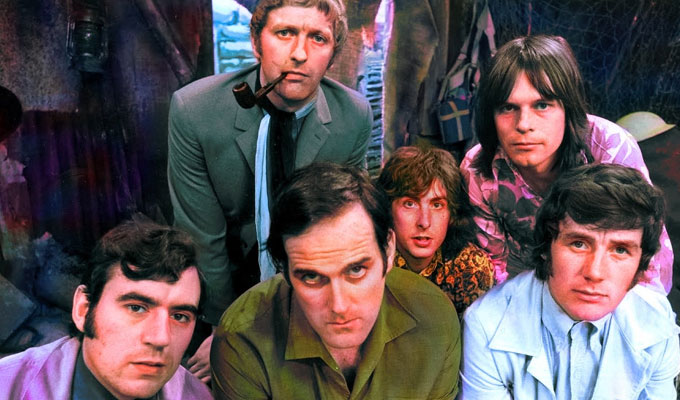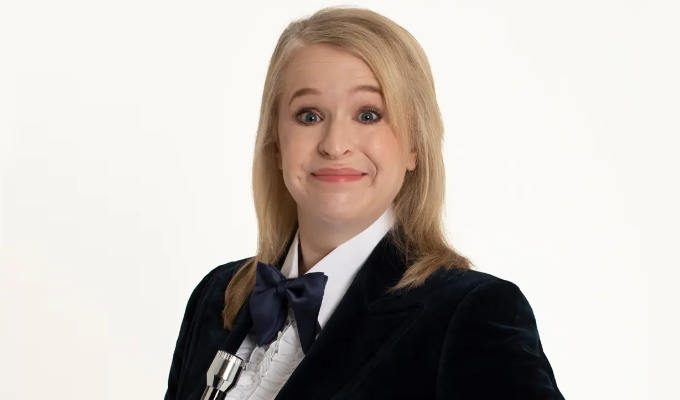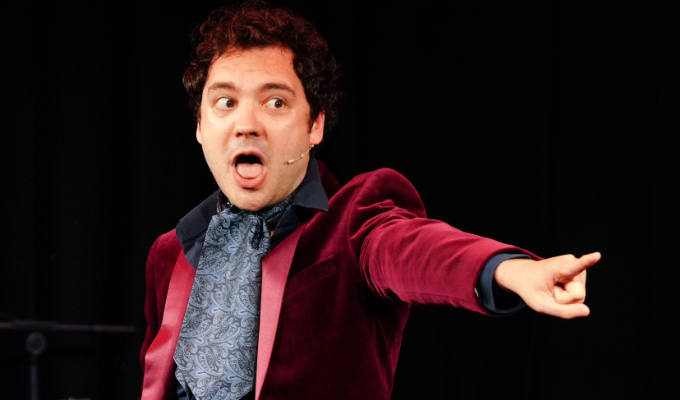
How David Frost almost scuppered Monty Python
Star didn't want to release John Cleese from his contract
David Frost almost scuppered Monty Python’s Flying Circus by refusing to release John Cleese from his contract, a memo fromn the BBC archives reveals.
Cleese came to fame in the mid-1960s on The Frost Report, alongside Ronnie Barker and Ronnie Corbett, and went on to make At Last The 1948 Show with his Cambridge pal Graham Chapman for Frost’s production company, Paradine.
But when the pair joined forces with Michael Palin, Terry Jones, Eric Idle and Terry Gilliam for the new TV project that would become Monty Python’s Flying Circus, Frost wanted a slice of the action.
A memo from comedian Barry Took, who was at the time a consultant for the BBC, revealed the tensions.
Writing to entertainment executives, he says: ‘John Cleese phoned me today (20.4.69) to say that he is still under contract to Paradine Productions who want to be involved in "The Circus" project in a co production.
‘Should the BBC be uninterested in the idea of co- production with Paradine, John Cleese must withdraw from the project as a performer, although he says he will be able to contribute to the scripts.
‘This being so, I suggest that we scrap the idea of The Circus and proceed with my original concept a show starring Michael Palin, Terry Jones and Eric Idle, with cartoon inserts by Terry Gilliam.
‘A "Comedy Playhouse" on BBC2 made in June, should if successful be followed by a six or seven episode series starting in week 34. This series could be placed on BBC1 or BBC 2, whichever channel needs servicing.
‘When John Cleese is freed from his Paradine committment [sic] we can then re-examine the concept of The Circus, say in 1971.’
 The archives do not reveal what happened next, but the BBC were apparently successful in seeing off 30-year-old Frost, right, who was already a powerful broadcasting impresario as well as a star. Episode one of Monty Python’s Flying Circus was recorded on September 7, 1969, and premiered on October 5 on BBC One.
The archives do not reveal what happened next, but the BBC were apparently successful in seeing off 30-year-old Frost, right, who was already a powerful broadcasting impresario as well as a star. Episode one of Monty Python’s Flying Circus was recorded on September 7, 1969, and premiered on October 5 on BBC One.
Took’s memo has just been released by the broadcaster as part of a cache of archive material celebrating the career of David Attenborough, who was the BBC’s director of programmes at the time, having previously been head of BBC Two.
Documents also show that the Pythons were slow to settle on a name for their project.
In July 1969 – just two months before filming – head of comedy Michael Mills wrote to producer Ian MacNaughton urging him: ‘The time has come when we must stop having peculiar titles and settle for one overall title for the series. Please would you have a word with them and try to produce something palatable.’
Other documents show how viewers’ reaction was divided over the surreal new comedy programme.
Audience research say that a quarter of viewers ‘responded in an unfavourable, if not, indeed, hostile fashion. It was, they often thought, a "load of rubbish, a stupid and, frequently, quite meaningless programme that, far from being funny, was one long bore"… the humour was infantile, it was said and the show failed to raise even a smile. "I honestly can't remember when I have watched so much tripe".
Yet about half the ‘small’ sample had thoroughly enjoyed the programme. The memo notes: ‘It was, several claimed, quite one of the most amusing and entertaining shows they had seen inspired "Goon-like" humour that exploited the medium of television to the full, with sketches, cartoon sequences, animated pictures, etc, and, over all, a delicious sense of the ridiculous "it is outrageous and I enjoy every minute of it".
The papers add: ‘According to some, the programme was funny in places but rather too silly in others: the ideas were good but "something went wrong in the visual telling of them".’
Published: 11 Dec 2024






